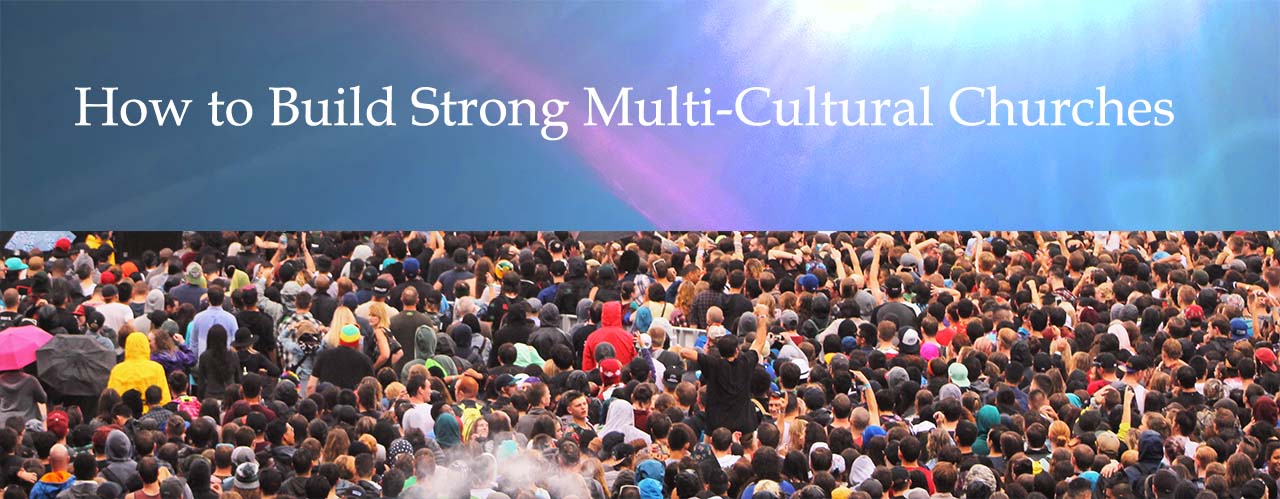by Rev. Sunday Bwanhot | Pastor, ECWA Church, Chicago | We must have policies that allow “none indigents” to be engaged in ministry at all levels and be elected into different offices within the ECWA Structure
“After this I looked, and there before me was a great multitude that no one could count, from every nation, tribe, people and language, standing before the throne and before the Lamb. They were wearing white robes and were holding palm branches in their hands. 10 And they cried out in a loud voice: “Salvation belongs to our God, who sits on the throne, and to the Lamb.” 11 All the angels were standing around the throne and around the elders and the four living creatures. They fell down on their faces before the throne and worshiped God, 12 saying: “Amen! Praise and glory and wisdom and thanks and honor and power and strength be to our God for ever and ever. Amen!” Rev. 7:9-12 The chief end of man and all creation is to worship God thereby bringing glory to God. The Great Commission is about making disciples of all nations (ethnos- people groups). The Church is God’s instrument to make this happen. So, building strong multi-cultural churches is not man’s idea, it is God’s express will. WHAT IS A MULTI-CULTURAL CHURCH? Simply put: Believers of different cultural backgrounds worshiping together in one place. These different cultures may be of the same ethnicity or of different ethnicities. This is God’s plan that will culminate in the Revelation 7 experience. Naturally people of the same race or tribe hang out together and systematically exclude others who are not like them. But the church of God is called to pull down all barriers that separate and differentiate us. This has always been a challenge which each generation must face and overcome. Although all of Jesus’ disciples were of Jewish cultural background, the Holy spirit launched the Church in a spectacular way by bringing people of different ethnic and cultural backgrounds together as recorded in Acts 2. The Church that was birthed represented the community around it. The Jews were very reluctant to integrate other cultures and ethnicities, they wanted to maintain their mono-cultural identity. God had to get to work to change that mindset. He was not going to allow His church to be limited to or be defined by one cultural group or ethnicity. He created all cultures and ethnic groups and He wants all to worship Him together as part of the one family of God. Acts 10 expose how God finally dealt with the ethnocentric posture of the Jewish believers. “Then Peter began to speak: “I now realize how true it is that God does not show favoritism 35 but accepts from every nation the one who fears him and does what is right.” Acts 10:34-35. Later on, Paul declared in Galatians 3:28 “There is neither Jew nor Gentile, neither slave nor free, nor is there male and female, for you are all one in Christ Jesus.” It is clear then that God’s plan for His church is to accommodate all people of all cultures and backgrounds. It is to be noted that there will be mono-cultural churches is some situations like rural communities where all the community members are of the same culture. There will be need for a mono-cultural church in cities also where immigrants into the city cannot communicate in the main spoken language. First generation immigrants benefit from the mono-cultural church. However, such churches must work toward being multi-cultural, else they will not grow much and they will lose their young ones who may not be interested in learning the language of their parents. HOW WE CAN MAKE THE TRANSITION AND BUILD STRONG MULTI-CULTURAL CHURCHES
- Be convinced that this is God’s plan and work toward it.
- Pray for God’s revelation of how your church can make the transition
- Prepare your congregation for the change which could take a long time and could be painful
- Study, preach and teach the Bible always rather than talking much about your culture or church denomination.
- Language is a strong tool that connects people – use the main language everyone speaks.
- Have a parish mindset for your church. Reach out to everyone in the community where your church is, rather than just inviting people of your cultural background.
- Adapt to the community where you are – become all things to all people… Some aspects to consider are: dressing, language, time orientation, style of worship, etc.
- Be involved in the community in other ways and not just on spiritual things
- Show that you are for everyone and not just for some.
CHALLENGES OF MULTI-CULTURAL CHURCHES
- Acts 6 reveal how it can get messy when different cultural groups worship together. A proper balancing act is needed.
- Cultural pressure can be very strong. Peter shied away from the Gentiles to please his fellow Jewish believers; Paul had to rebuke him Galatians 2:11-13
- Acts 15. The Jerusalem Council had to come up with new policies that addressed the concerns of believers from other cultural backgrounds.
- Churches need to have right policies that welcome people of different backgrounds
- Majority culture should always be ready to make sacrifices to accommodate the minorities
- It is important to not only integrate but also treat everyone fairly and equally.
- Give leadership responsibilities to minority cultures also.
CONCLUSION Evangelical Church Winning All (ECWA) – if we are going to be the kind of church God wants us to be, which we also want to be, we must follow the 9 steps given above and in addition: update our constitution, manuals, and handbooks to be a true reflection of a church that is global and welcomes all cultures. We must have policies that allow “none indigents” to be engaged in ministry at all levels and be elected into different offices within the ECWA Structure. Church planters need to be trained and equipped to start churches with the mindset of growing multi-cultural churches and not mono-cultural churches. It is easier to start a multi-cultural church than to convert a mono-cultural church into a multi-cultural church. May ECWA be a church that anybody from any ethnicity, or cultural background can walk in and feel at home because we are all about Jesus and not so much about culture or denomination. Amen!
by Rev. Sunday Bwanhot is EMS/SIM Missionary. He serves as Team leader of SIM Culture Connexions; Pastors of ECWA Chicago.







